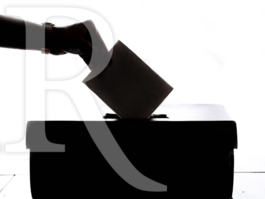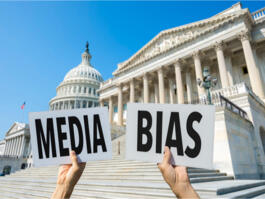A Tale of Two Pollsters
The New York Times reports in their latest poll released late yesterday that Americans don’t care about Hillary Clinton’s e-mail and Clinton Foundation problems. They conclude that the former secretary of State and putative Democratic presidential nominee in 2016 has weathered the storm so far.
For Democrats, it’s always advantageous when pollsters turn to Americans in general or even registered voters rather than Likely Voters like those we routinely survey here at Rasmussen Reports. It’s true that Republicans are more likely than Democrats to say they intend to vote which helps explain why Democrats are always championing schemes like same-day voter registration, mail-in voting and the like to get their voters to the polls. But, historically, we’ve also found that polling likely voters gets us closer to the actual end result than surveying Americans as a whole.
Likely voters are also following the news much more closely, showing the same commitment to being informed that they have on Election Day. The wider pool of all Americans is thus far more likely to produce results like this one reported in the New York Times’ latest poll: 55% say they don’t know enough to answer whether foreign donations affected Mrs. Clinton’s actions while serving as secretary of State.
By contrast, Rasmussen Reports finds that when you survey Likely U.S. Voters:
-- 63% think it’s likely some actions Clinton took as secretary of State were influenced by donations made to the Clinton Foundation, including 42% who say it’s Very Likely.
-- 51% do not trust Clinton. Thirty-seven percent (37%) say they do trust the former first lady, but another 13% are undecided.
-- 52% now believe Clinton’s use of a private, non-government e-mail provider for issues at the highest levels of the U.S. government raises serious national security concerns, up slightly from 49% in early March.
-- 45% now say Clinton deliberately used the private e-mail account to hide things from government oversight. That’s a six-point increase from 39% two months ago.
The New York Times survey was based on 1,027 respondents and was conducted from April 30 through May 3.
The Rasmussen Reports survey of 1,000 Likely Voters was conducted on April 27-28.
Rasmussen Reports found just a month ago that 57% of likely voters think Clinton is likely to be elected president next year, with 23% who say it’s Very Likely.
Our polling suggests, however, that it’s too soon to say Clinton has "weathered the storm."
Please sign up for the Rasmussen Reports daily e-mail update (it’s free) or follow us on Twitter or Facebook. Let us keep you up to date with the latest public opinion news.
Rasmussen Reports is a media company specializing in the collection, publication and distribution of public opinion information.
We conduct public opinion polls on a variety of topics to inform our audience on events in the news and other topics of interest. To ensure editorial control and independence, we pay for the polls ourselves and generate revenue through the sale of subscriptions, sponsorships, and advertising. Nightly polling on politics, business and lifestyle topics provides the content to update the Rasmussen Reports web site many times each day. If it's in the news, it's in our polls. Additionally, the data drives a daily update newsletter and various media outlets across the country.
Some information, including the Rasmussen Reports daily Presidential Tracking Poll and commentaries are available for free to the general public. Subscriptions are available for $4.95 a month or 34.95 a year that provide subscribers with exclusive access to more than 20 stories per week on upcoming elections, consumer confidence, and issues that affect us all. For those who are really into the numbers, Platinum Members can review demographic crosstabs and a full history of our data.
To learn more about our methodology, click here.



